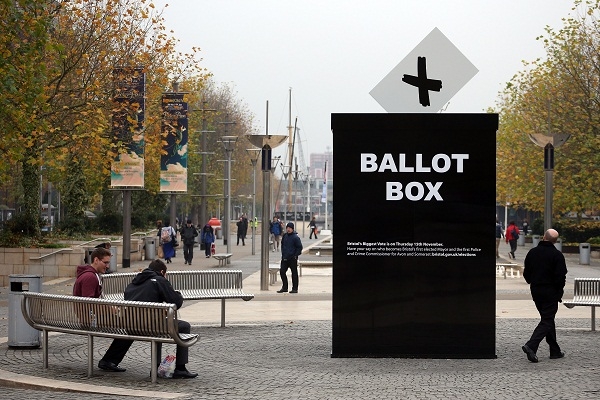So much has been written about the lead up to, and the fall-out from, last week’s elections for Police and Crime Commissioners that it seems almost futile to try to add anything.
As the paltry turn-out became obvious – formally and reportedly as it was obvious to anyone in touch with a polling station on the day – and the election of a myriad of quixotic independent candidates apparent, I tweeted that I thought we may regret introducing PCCs and that I regretted voting for the Bill which made them a reality.
That was borne out of frustration that we really didn’t need to end up where we did last Friday. It was predicted and therefore avoidable.
Take the issue of timing. Britain does not have a recent tradition of going to the polls in November. Whilst it was not uncommon in the 19th century, with November elections in 1806, 1812, 1837 and 1852, there were only two occasions of November voting in the 20th century – the most recent being 1935. Anyone eligible to have voted in November before last Thursday would be a minimum of 98 today.
So why did we end up with a stand-alone election with the additional cost when it could easily have been in May?
Received wisdom suggests that Nick Clegg did not want the local elections to be dominated by debate about crime and law and order. Given that Liberal Democrats are passionate advocates of the systems that seek to give votes to prisoners and prevent us deporting the likes of Abu Hamza that is a reasonable worry. But was it right to banish the elections for the post that sits at the heart of the Prime Minister’s law and order reform to the dark days of November so that Mr Clegg would not have to account for his principles in the light evenings of May? I suspect most Conservatives are clear in their answer to that one.
Then we turn to the public information campaign. Or rather the risible lack of one. Why was the decision taken not to afford candidates the same rights as those standing for the House of Commons or even the European Parliaments and allow them a free Royal Mail delivery to every voter to set out their stall?
The idea of saving money simply doesn’t hold water here. If we were to sanction spending of close to £100 million to have a separate national poll to save Mr Clegg’s blushes it seems odd not to go the whole way and run it as other elections are run. That indeed was what the Electoral Commission were advocating. Given that politicians are ordinarily falling over themselves in the rush to implement the recommendations of such ‘independent’ bodies it seems bizarre not to have done so on this occasion. And where were our senior political figures to make the case for these vital elections, whose winners will now have powerful roles in the allocation of precious police resources?
I cannot recall that the PCC elections or the concept of the role even made it into the conference speeches of either the Leader of the Opposition or Prime Minister, despite the latter having been the biggest cheerleader for their introduction.
What we ended up with was a toxic mix of low voter awareness about the role, the absence of an active public information campaign, near silence from politicians with the voice to command attention promoting the role and polling day moved to a time of year when Britain doesn’t have a tradition of voting and when it gets dark at 4pm.
In many respects, we got the turnout we deserved.
I sincerely hope the Prime Minister is right and that, the next time these positions are up for election, the turnout will be much higher than the historic low we saw last Thursday. At the same time, I trust that lessons are being learned so that last week’s farce is not repeated.
Conor Burns is the Conservative MP for the Bournemouth.






Comments